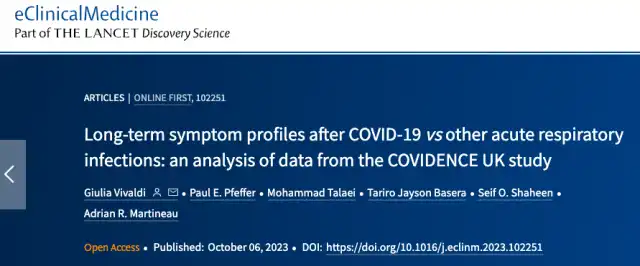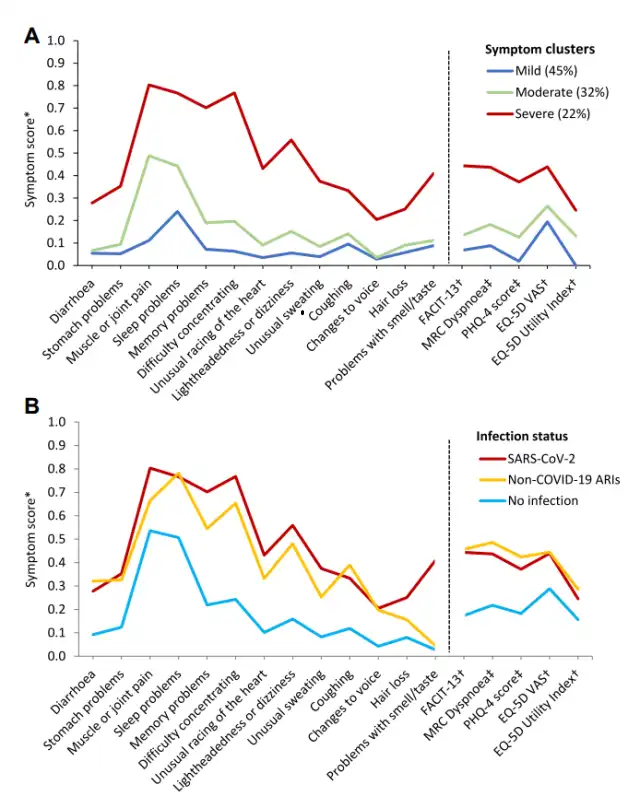More Than Just Long-COVID: Long-Lasting Common Cold Symptoms
- Oregon Reverses Course: From Decriminalization to Recriminalization of Drug Possession
- Why Lecanemab’s Adoption Faces an Uphill Battle in US?
- Yogurt and High LDL Cholesterol: Can You Still Enjoy It?
- WHO Releases Global Influenza Vaccine Market Study in 2024
- HIV Infections Linked to Unlicensed Spa’s Vampire Facial Treatments
- A Single US$2.15-Million Injection to Block 90% of Cancer Cell Formation
More Than Just Long-COVID: Long-Lasting Common Cold Symptoms
- Was COVID virus leaked from the Chinese WIV lab?
- HIV Cure Research: New Study Links Viral DNA Levels to Spontaneous Control
- FDA has mandated a top-level black box warning for all marketed CAR-T therapies
- Can people with high blood pressure eat peanuts?
- What is the difference between dopamine and dobutamine?
- How long can the patient live after heart stent surgery?
More Than Just Long-COVID: Long-Lasting Common Cold Symptoms
Since 2023, infections caused by the COVID-19 virus have significantly decreased. However, a portion of individuals who previously contracted the virus continue to experience physiological, psychological, or cognitive symptoms, a condition known as “Long COVID,” affecting approximately 10% of COVID-19-infected individuals.
As per the World Health Organization (WHO) definition, “Long COVID” is a condition that COVID-19 virus-infected individuals may face. Symptoms typically include fatigue, shortness of breath, dizziness, brain fog, loss of smell or taste, and can persist for three months, six months, nine months, or even longer. This condition has been described as the emerging next public health crisis.
On October 6, 2023, researchers at Queen Mary University of London published a study in the eClinicalMedicine journal titled “Long-term symptom profiles after COVID-19 vs other acute respiratory infections: an analysis of data from the COVIDENCE UK study.”
The study reveals that after non-COVID acute respiratory infections, individuals can also experience long-lasting symptoms referred to as “Long-Lasting Common Cold.” The most common symptoms include a persistent cough, stomach pain, and diarrhea, lasting for over four weeks after infection. Research on post-acute respiratory infection sequelae should be expanded from the COVID-19 virus to other pathogens.

“Long COVID” is a widely recognized condition, despite its heterogeneity. Acute respiratory infections (ARI) caused by other pathogens can also lead to long-term symptoms, but there has been limited research comparing the acute sequelae of the SARS-CoV-2 virus with other acute respiratory infections (ARI).
In this study, the research team compared the symptom profiles of previously infected COVID-19 patients, non-COVID acute respiratory infection patients, and control individuals during the same period to determine long-term symptoms.
The study, which began in 2020, included a total of 10,171 participants, with 1,311 individuals (12.9%) being COVID-19 patients and 472 individuals (4.6%) having non-COVID acute respiratory infections.
The study found that after non-COVID acute respiratory infections, individuals can experience long-lasting symptoms referred to as “Long-Lasting Common Cold,” with the most common symptoms being a persistent cough, stomach pain, and diarrhea lasting for over four weeks.
Both COVID-19 patients and non-COVID acute respiratory infection patients were associated with increased rates/severity of most symptoms and decreased health-related quality of life (HRQoL) compared to uninfected individuals. COVID-19 patients were significantly more likely to experience taste/smell issues and dizziness compared to non-COVID acute respiratory infection patients.
The research team classified each infection type into three severity groups using latent class analysis (LCA).
In the most severe group (comprising 22% of COVID-19 patients or non-COVID acute respiratory infection patients), the likelihood of COVID-19 patients and non-COVID acute respiratory infection patients experiencing taste/smell issues were 41% and 4%, hair loss 25% and 16%, abnormal sweating 38% and 25%, rapid heartbeat 43% and 33%, and memory problems 70% and 55%, respectively.

These findings suggest that both COVID-19 patients and non-COVID acute respiratory infection patients are associated with various symptoms persisting for more than four weeks after acute infection. The research team emphasizes the need to extend the study of sequelae after acute respiratory infections from the COVID-19 virus to other pathogens.
More Than Just Long-COVID: Long-Lasting Common Cold Symptoms
Paper Link:
https://doi.org/10.1016/j.eclinm.2023.102251
(source:internet, reference only)
Disclaimer of medicaltrend.org
Important Note: The information provided is for informational purposes only and should not be considered as medical advice.



